How to make your towels feel soft and fluffy again
Have your towels seen better days? Here’s how to make towels feel soft again
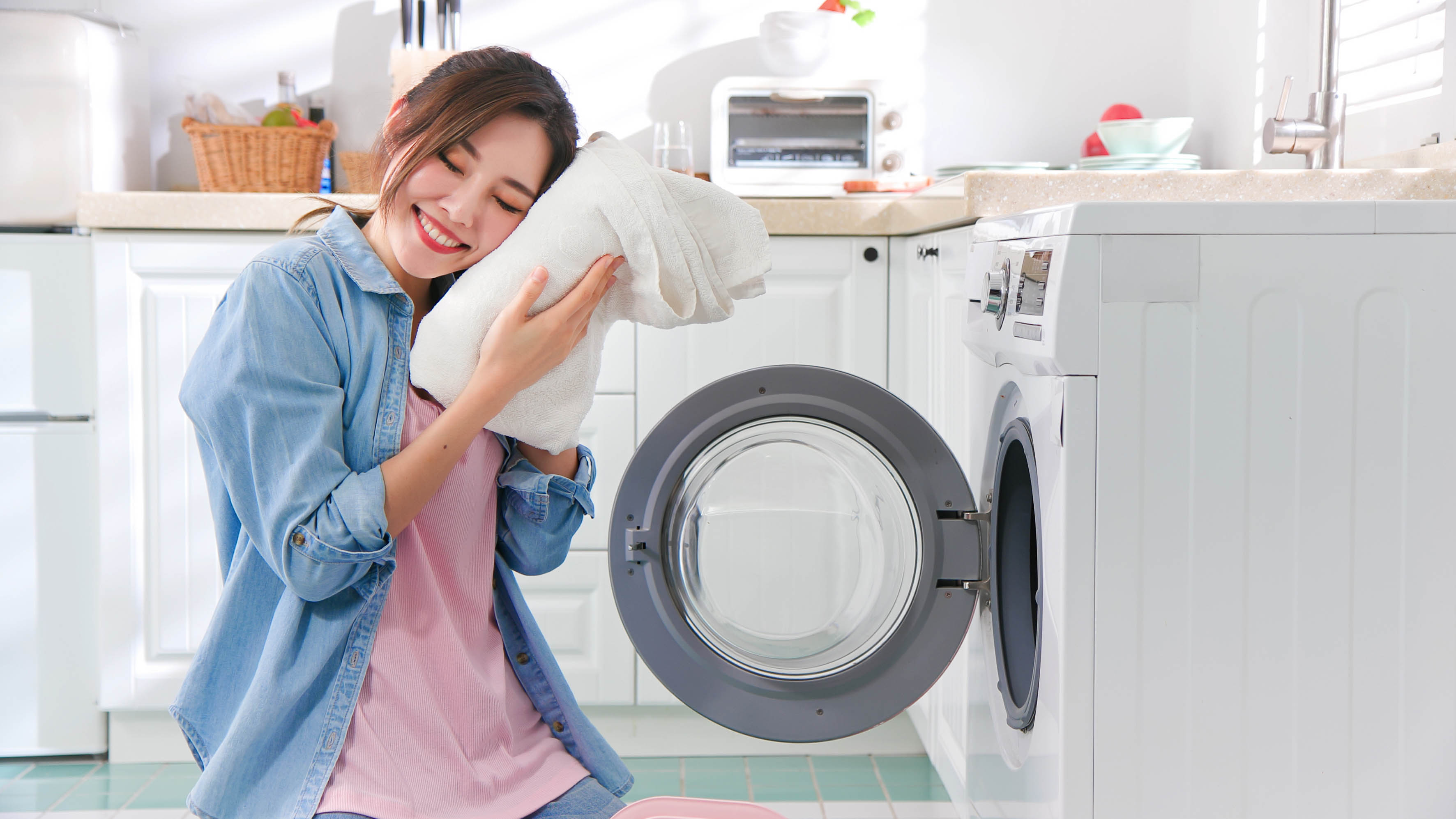
Even if you take the utmost care on laundry day, every household needs to know how to make towels soft again. Towels often feel great on the shop shelf, but then soon lose their fluffiness after a single wash. And then the feel only seems to get worse with each consecutive wash, even if you’re using one of the best washing machines. Before you know it, it feels like you’re snapping your towel in half to fold it, and rather than soft and fluffy, it feels more like sandpaper as it scratches the water away.
But don’t despair, and certainly don’t go throwing away your hardened towels just yet. There are ways you can restore your towels to their former fluffiness, and all it takes are a few household products.
Here, we take you through exactly what you need to do in order to get your towels feeling like new again, so you can fold them up and offer them out to guests with pride. Here’s how to make your towels feel soft again. You may also be interested in 5 tips to freshen up your towels.
Why are my towels no longer soft?
There are several reasons why your towels may have hardened over time. Firstly, when you’re shopping for new towels, you should know that they have actually been treated with a silicone coating to make them feel softer than they actually are. This coating acts as a conditioner of sorts to make the fibers feel more slick to the touch. Only when you wash this coating away will you know the true softness of your towels.
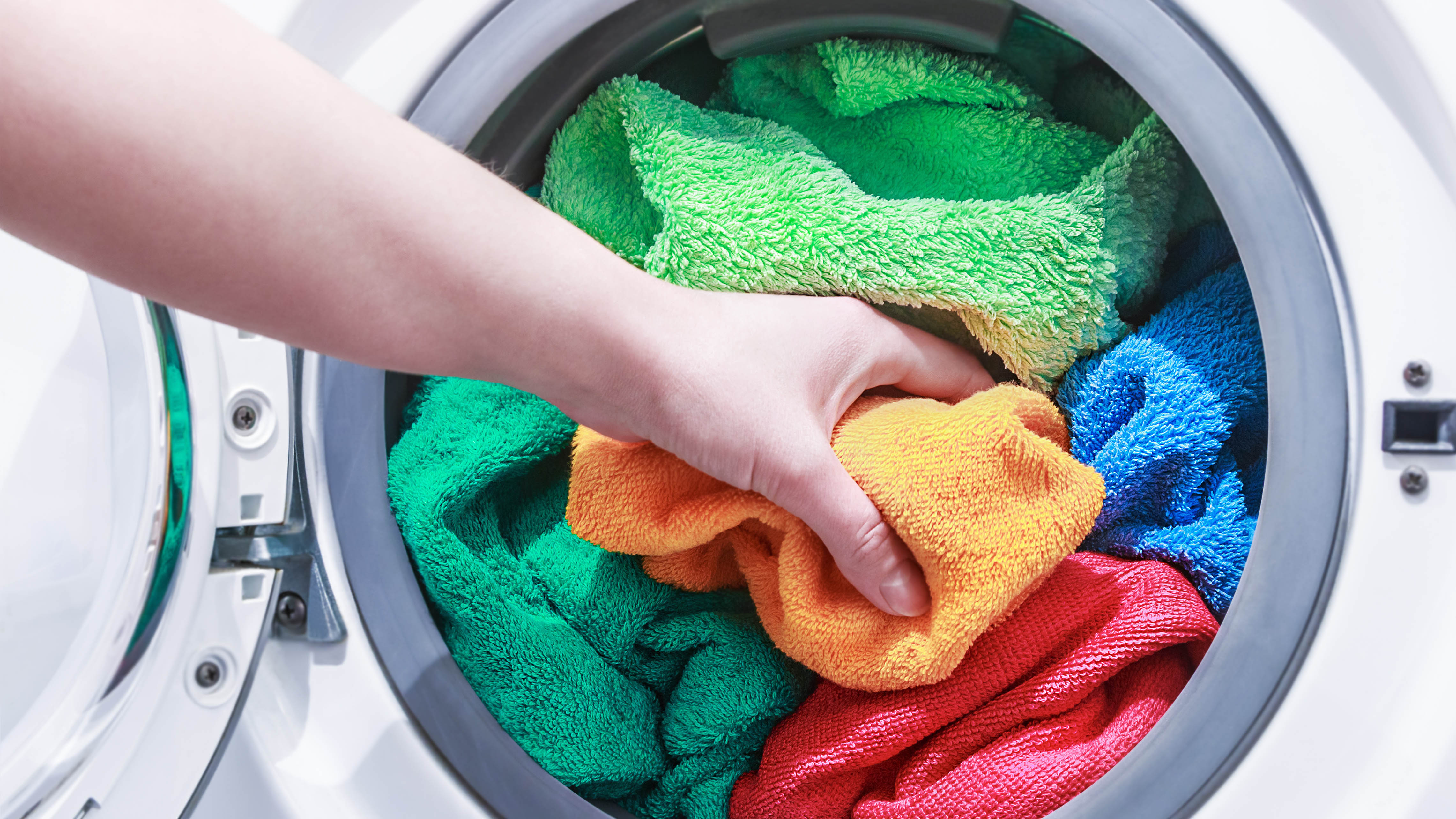
While you may sigh at this prospect, it is actually a good thing to get rid of this coating because it detracts from the absorbency of the towel. That’s why if you’ve ever tried using a new towel without washing it first, it will feel like you’re making very slow progress.
So your towel may never technically feel as soft as when it was new, but it’s a good trade-off to get effective absorbency, which is the purpose of a towel.
You can get a similar coating forming on your towels from using fabric softener and dryer sheets in your washes as well. This will essentially create a reverse effect — a residual coating will be applied to the towel and prevent it from absorbing as effectively. Considering this, while you may think you’re softening the towel, you may actually be ruining it. Here’s why fabric softener is bad news for you and your washing machine, if you want to know more.
Sign up to get the BEST of Tom's Guide direct to your inbox.
Get instant access to breaking news, the hottest reviews, great deals and helpful tips.
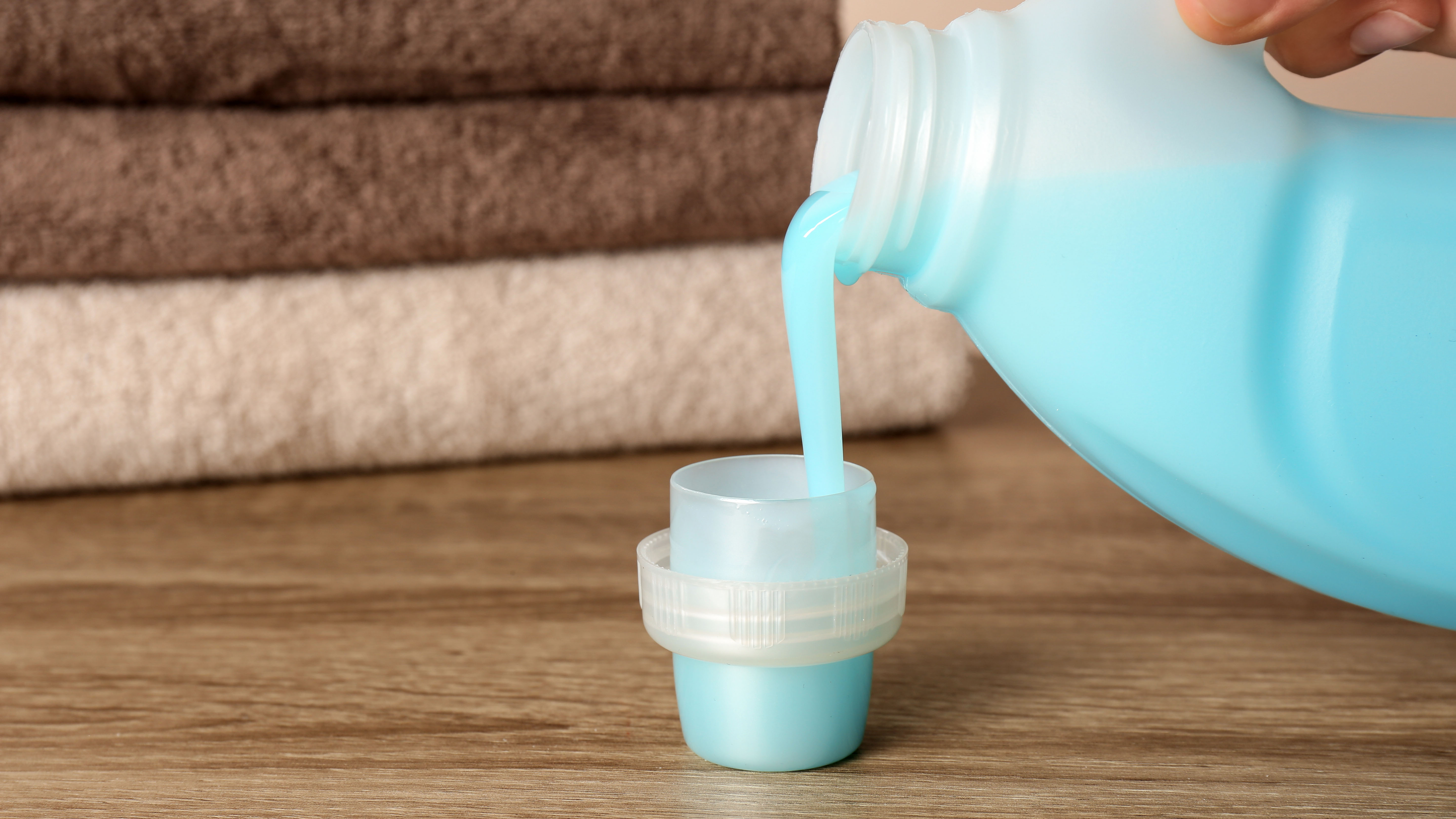
Too much detergent is another common culprit for hard towels. You may think it’s improving the cleaning power, but it will only lead to excess suds and residual detergent building up in your towels, causing them to harden and feel stiff.
Your drying method can contribute to the problem as well. If you often hang your towels to dry on a radiator, the heat can damage the finish and make your towels feel more rough to the touch.
How to make towels soft again
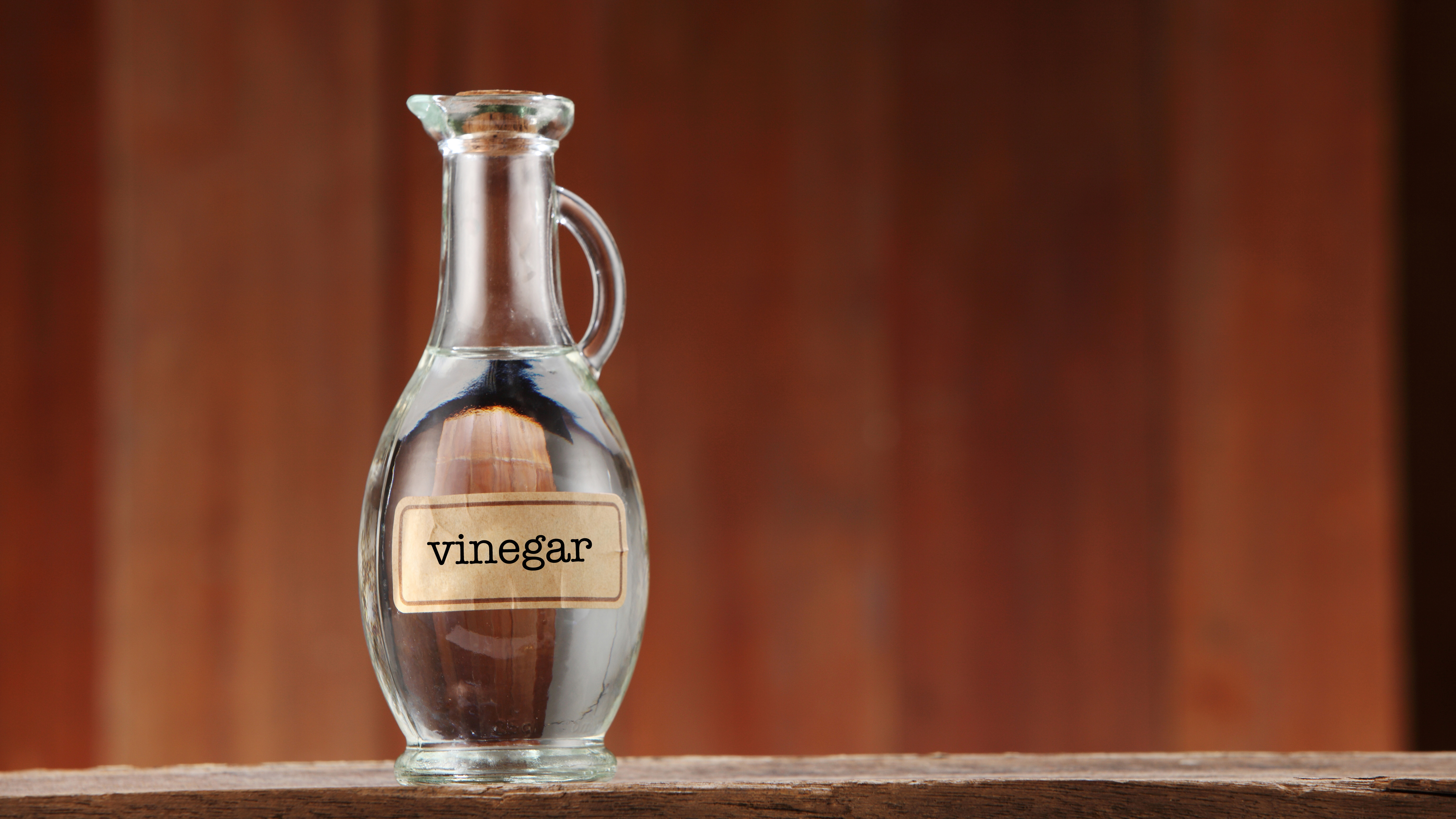
1. White vinegar — Distilled white vinegar seems to be the cleaning solution to everything these days, and hard towels are no exception. Vinegar will actually strip any residual soap from your towels, and consequently improve both the softness and absorbency. Don’t be afraid of your towels smelling like a fish and chip shop either — the fragrance will be washed away along with the excess suds.
Simply swap out your laundry detergent for one cup of vinegar as often as required, and leave the softener out. You can do this for every other wash, or as little as once a month — in either case, it will refresh your towels and clean them at the same time. Use the hottest temperature your towels will allow and run the rinse and spin cycles as per usual. Your towels should come out much softer than they went in.
We recommend swapping out fabric softener for vinegar in the future when it comes to towels, otherwise the absorbency will be reduced. Simply substitute half-a-cup of vinegar to dispense in the final rinse cycle. Never mix distilled white vinegar with bleach though — this creates a lethal chlorine gas.
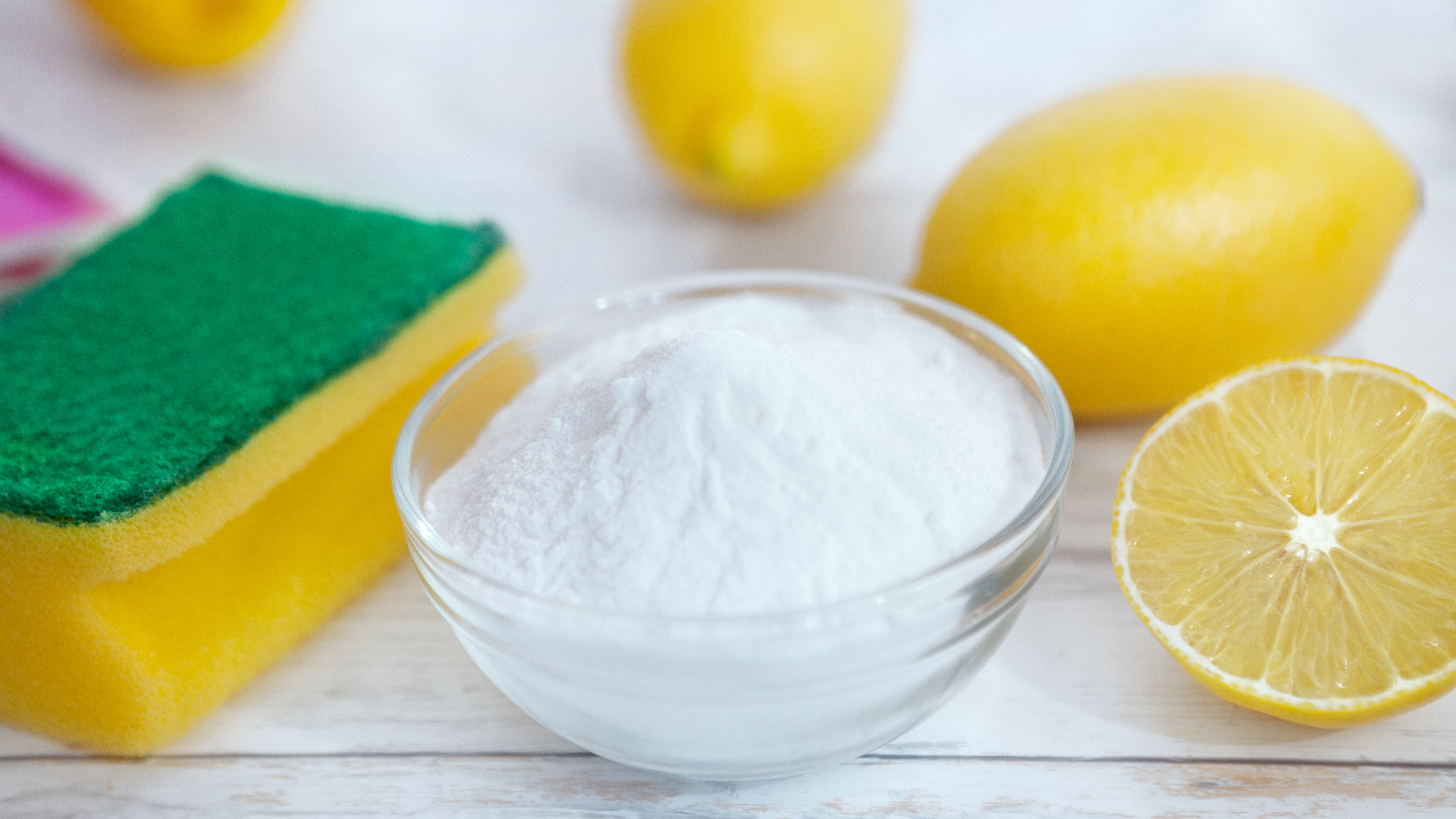
2. Baking soda — A great addition to vinegar has to be baking soda, which is another household product used in most cleaning hacks. Baking soda is a natural deodorizer, so it can be the best solution if you’re dealing with musty towels. It’s also great for removing any last remnants of soap or oils from the fibers. When followed on from the white vinegar treatment above, it can provide the ultimate solution for tough towels. However, you can run it separately as well.
Add half-a-cup of baking soda to the detergent compartment, once again leaving out any actual detergent or softener. Then run a standard cycle with your towels as mentioned in step one and let the baking soda work its magic.
Your towels should be as soft and fresh as ever once they’re finished, but make sure you follow the correct washing and drying method moving forward, as mentioned below.
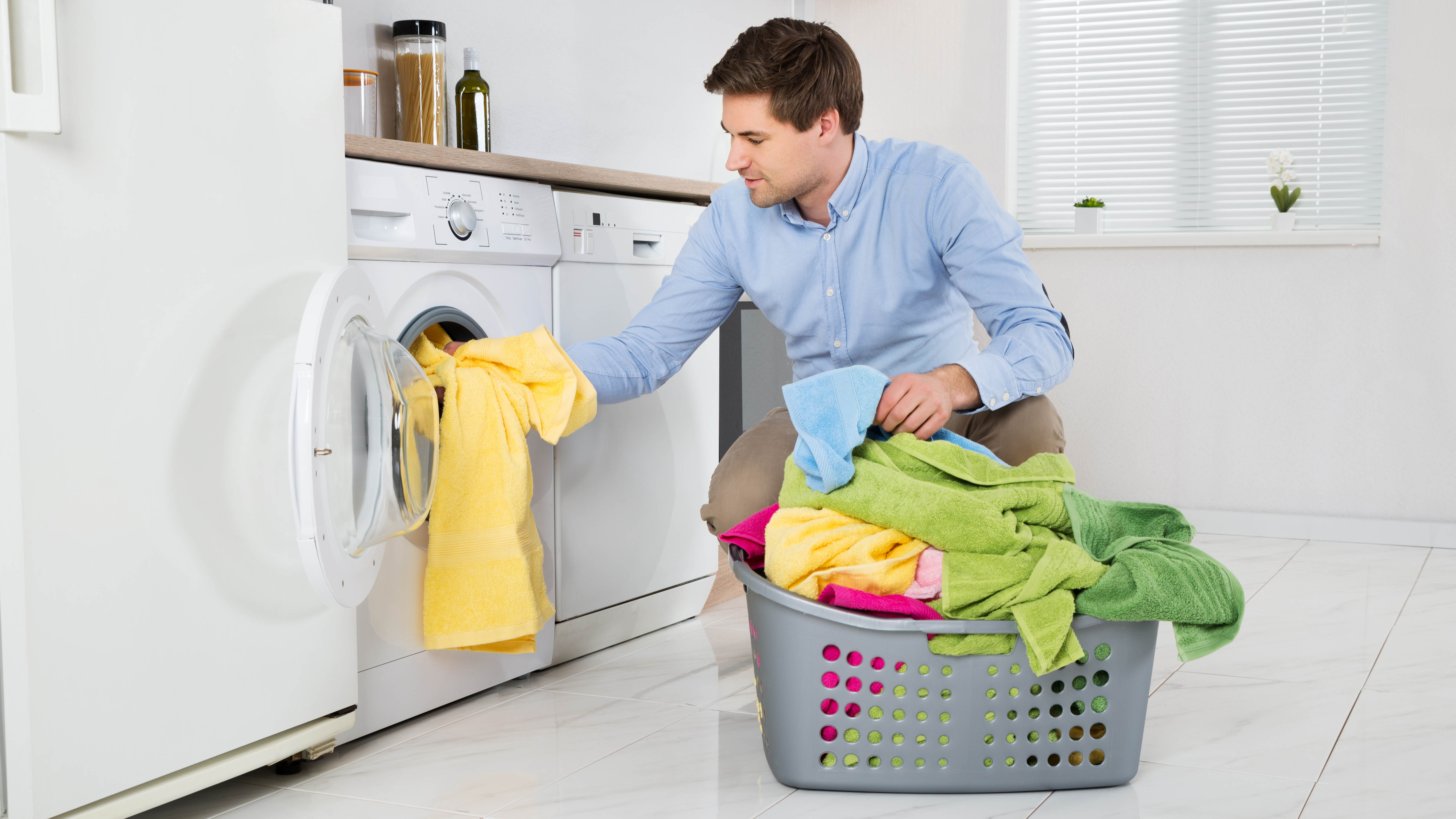
3. Wash correctly — First, we’ve mentioned it more than once, but stop using fabric softener on your towels — you will only deter the absorption. Secondly, make sure you’re using the correct amount of detergent. In fact, we even advise that you wash your towels separately and use about half of the detergent recommended. Towels don’t get as dirty as other items of clothing and consequently don’t need as much detergent, so cut back. That way, there’s less residual suds to harden your towels.
Only wash your towels when required. Get the most use out of them by hanging them up to dry in a well ventilated space. This will prevent them from smelling musty after one use.
We also recommend shaking out towels before and after loading them into the washing machine. This will open up the fibers, making them more receptive to the detergent, and more fluffy once dried.
Check out how to wash towels for full guidance. Plus, ever wondered how often should you wash towels? Here's what the experts say.
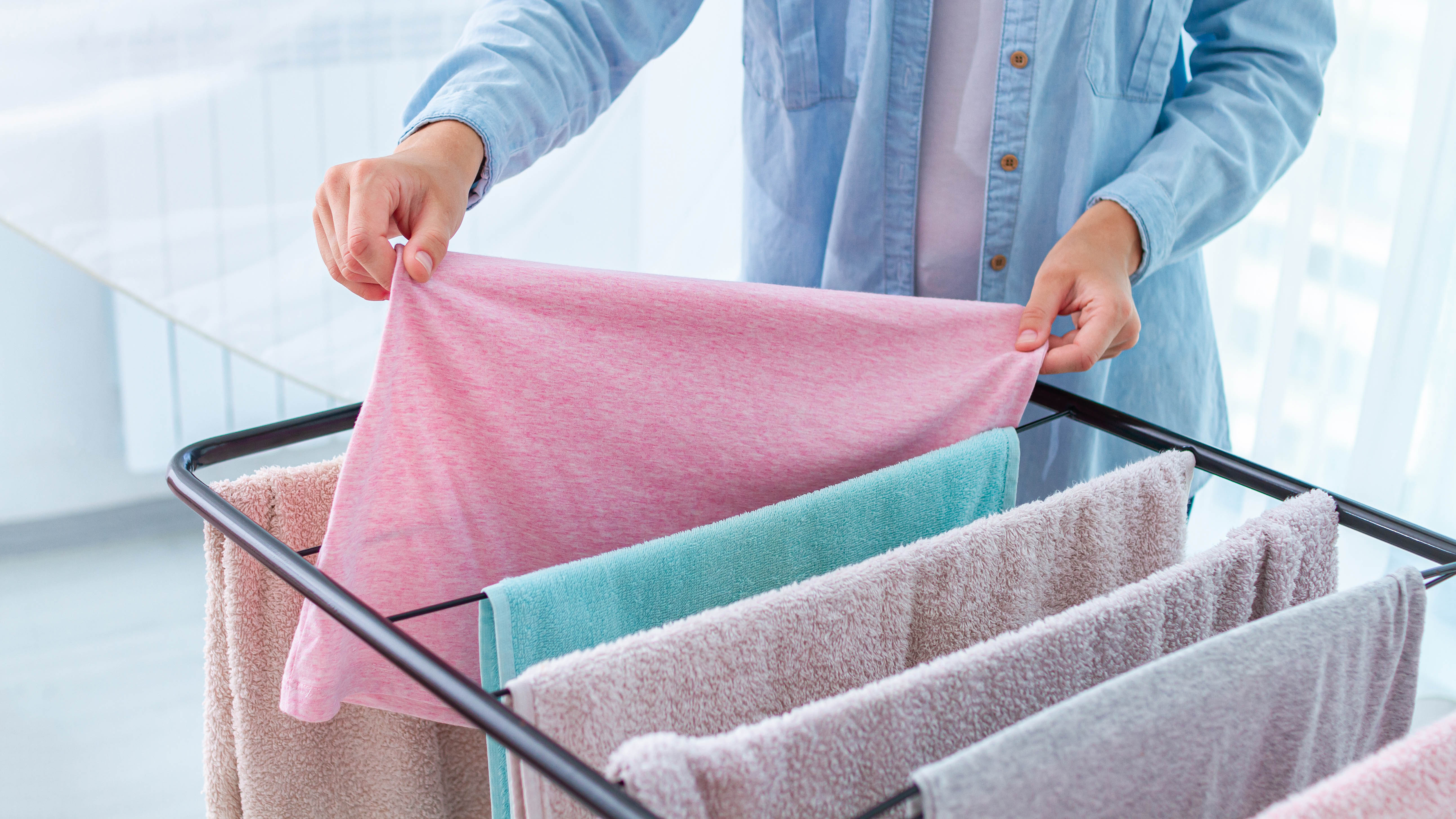
4. Dry correctly — Using one of the best clothes dryers will naturally make your towels feel softer versus hanging them up to dry, but be careful not to overdry. This will actually damage the towels and cause them to feel ‘crispy’ and stiff. Hang your towels to dry if they’re still slightly damp when they emerge from the dryer.
Steer clear of drying sheets as well — these cause much the same problems as fabric softener. You can, however, opt to throw a dryer ball into the mix, such as these Handy Laundry Store Wool Dryer Balls ($9.89, Amazon). This will help soften your towels as they agitate the load.
If you hang your towels out to dry, avoid the radiators, as mentioned earlier, and take advantage of the sun where you can. Keep in mind that while the sunlight can have a bleaching effect on white towels, it can equally fade colors with prolonged exposure.
If you follow the above tips, your towels should be soft and fluffy again in no time, although for severe cases, you may need to repeat treatments.
If you want more laundry tips, check out how to clean a washing machine for best performance. Or else you’ll end up wondering how to fix a shaky washing machine from wear and tear. Also, did you know that this is the cheapest time to do your laundry?

Katie Mortram used to be a Homes Editor for Tom's Guide, where she oversaw everything from kitchen appliances to gardening tools, as well as smart home tech. Specializing in providing expert advice for cleaning and home manintenance, she now works as Household Advice Editor for Good Housekeeping.
